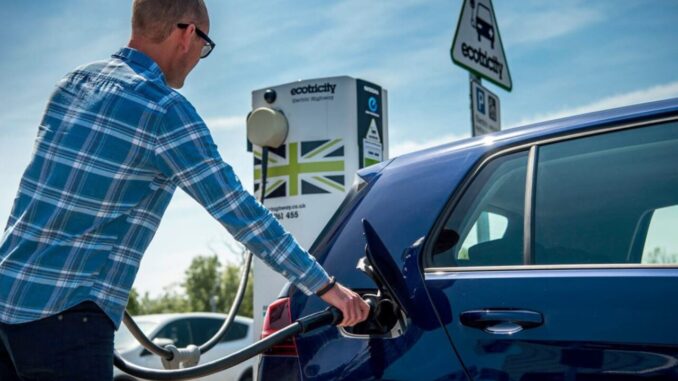
Motorists have been warned to expect a £195 ($247) charge if they own an electric vehicle as their current tax exemption is due to end April 1.
Owners of a certain type of vehicle have been advised to expect a letter warning that they will soon need to pay £195 ($247) to stay on the roads.
April is set to be an unpleasant month for many motorists, with the DVLA changing the rules around which vehicles are exempt from vehicle excise duty (VED), better known as road tax, and how much drivers will need to pay. [emphasis, links added]
On their website, the Government states that electric vehicle owners will be subject to the charge for the first time, paying the same amount as a petrol or diesel driver from the second year onwards.
They explained:
“From April 1, 2025, registered keepers of electric, zero or low-emission cars, vans, and motorcycles will need to pay vehicle tax in the same way as registered keepers of petrol and diesel vehicles. This change will apply to both new and existing vehicles.
“You will need to pay the lowest first-year rate of vehicle tax set at £10 from 1 April 2025. From the second tax payment onwards, you will pay the standard rate. This will be £195.”
Since 2011 all electric vehicles (EVs) have been exempt from road tax in a bid to encourage more drivers to make the switch from petrol and diesel models.
However, the Society of Motor Manufacturers and Traders (SMMT) noted that 1.3 million EVs were registered on UK roads at the end of 2024, and the incentive is due to end.
New electric vehicle buyers will still benefit from a significantly lower tax rate of just £10 [$13]. However, from the second year onwards, drivers will be charged the same flat rate of £195.
Nevertheless, drivers thinking about buying a new electric vehicle after April 1, 2025, should be particularly considerate that it does not have a retail price of over £40,000 [$50,622] to avoid the expensive car supplement.
This additional tax is applied to high-end models from the second to the sixth year the model is on the road, adding £425 [$538] to the cost of taxing a car.
As a result, drivers who own popular electric cars like the Tesla Model Y or Polestar 2 will need to pay £620 [$785] per year in tax.
Whilst the supplement does not affect models bought before April 1, 2025, many motoring experts have urged the Government to make a U-turn on the decision, with a significant amount of EVs priced above the threshold.
Mike Hawes, Chief Executive of the SMMT, suggested the measure would likely see sales of electric vehicles plummet, making it much harder for manufacturers to meet the strict government quotas.
Read rest at Express
We give you energy news and help invest in energy projects too, click here to learn more






